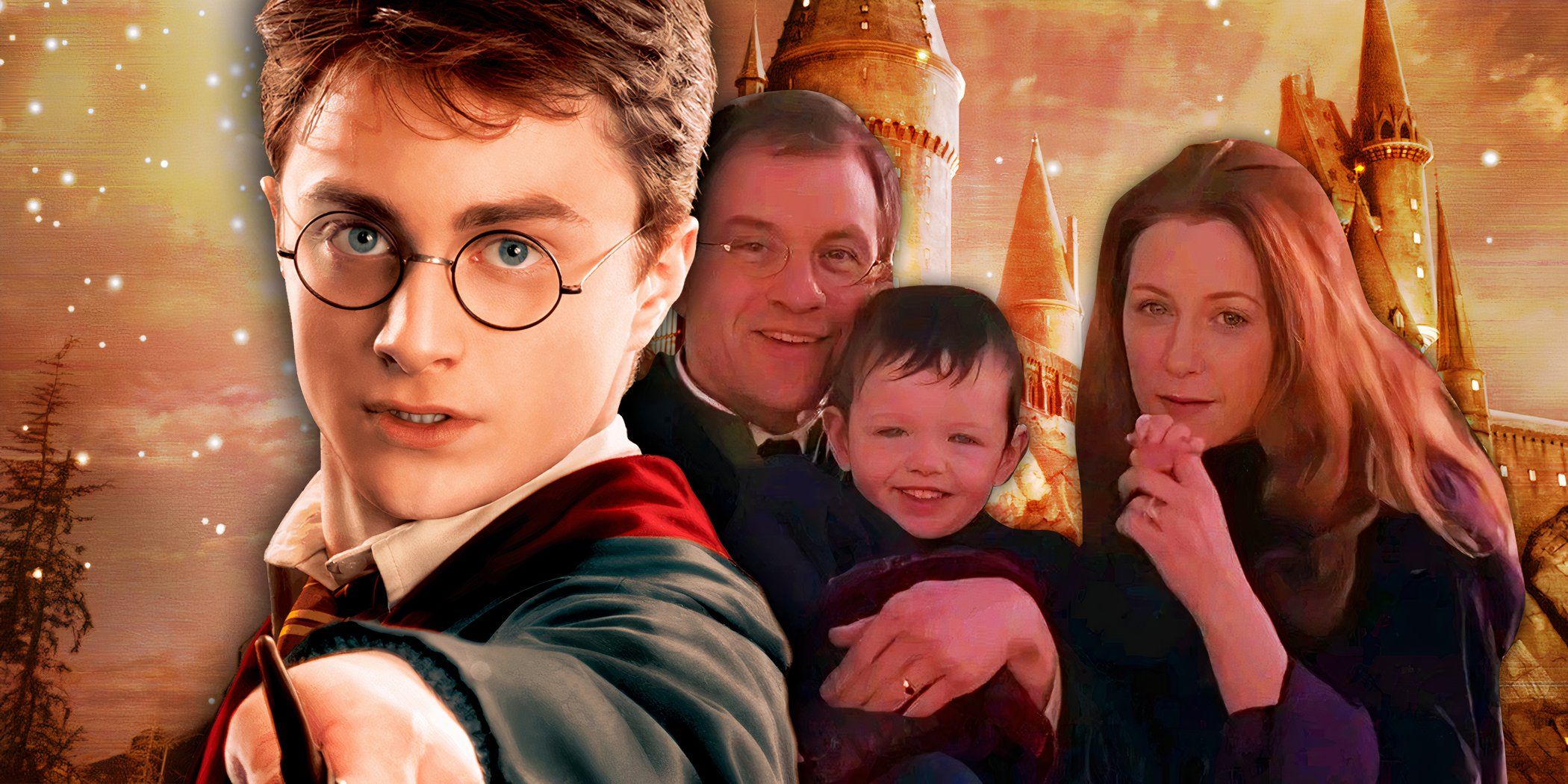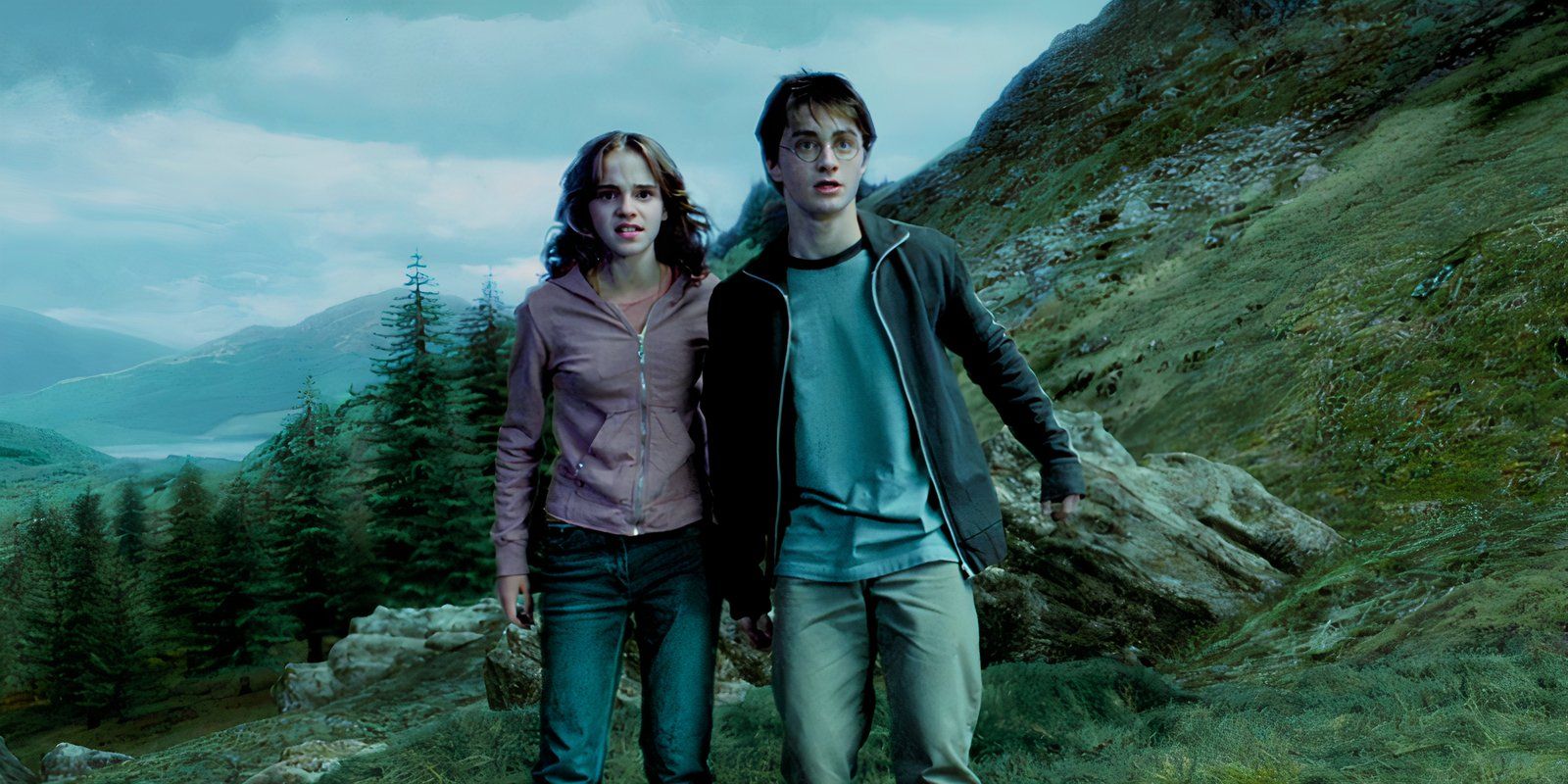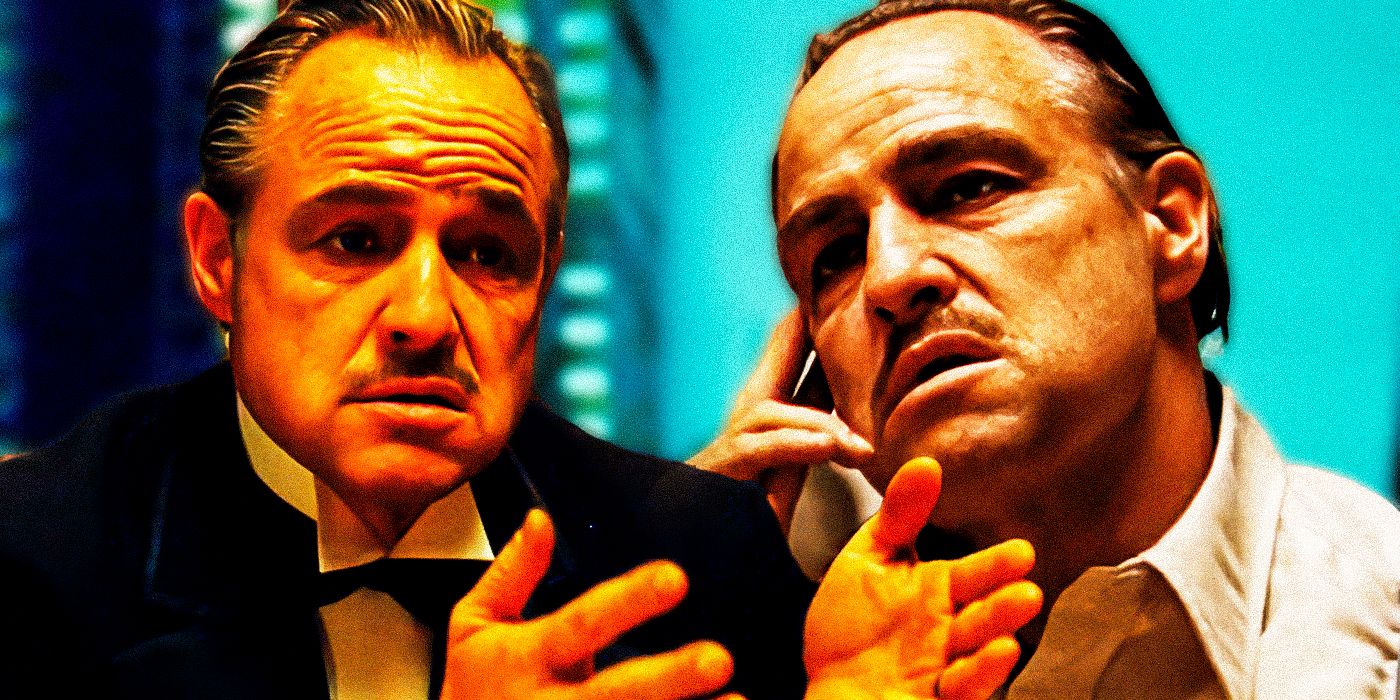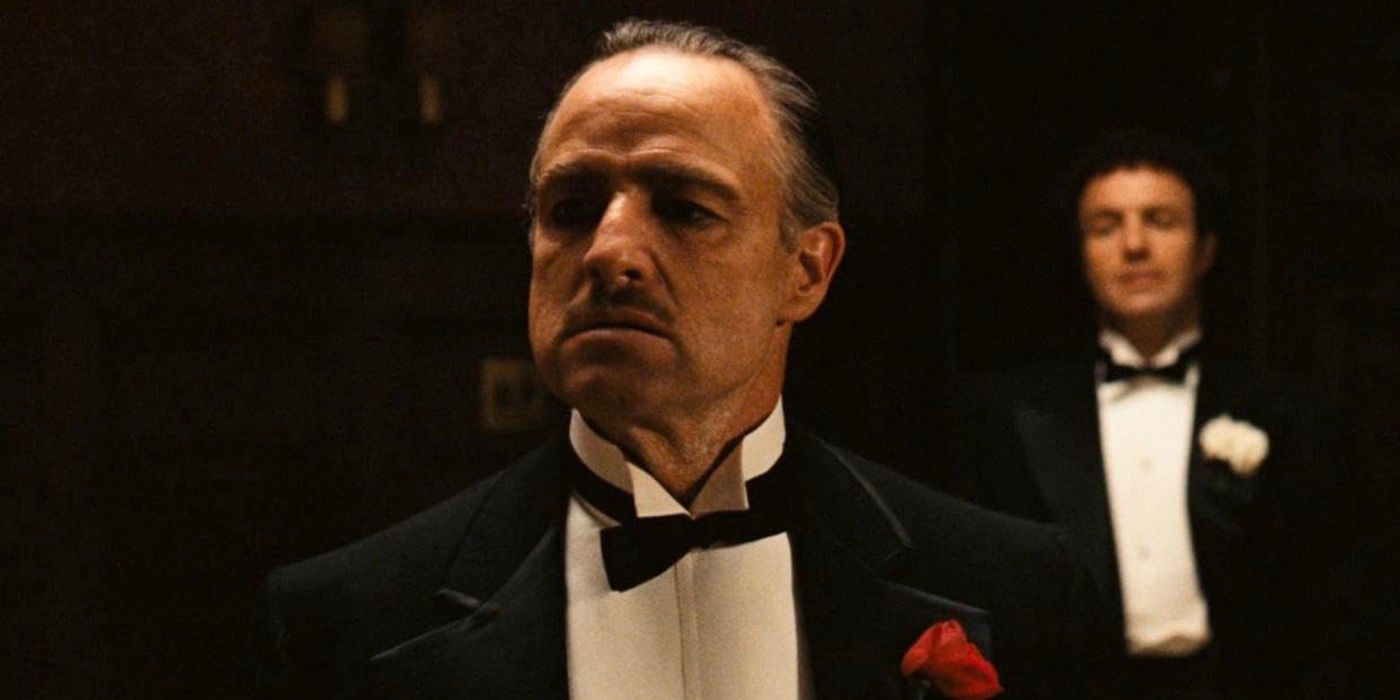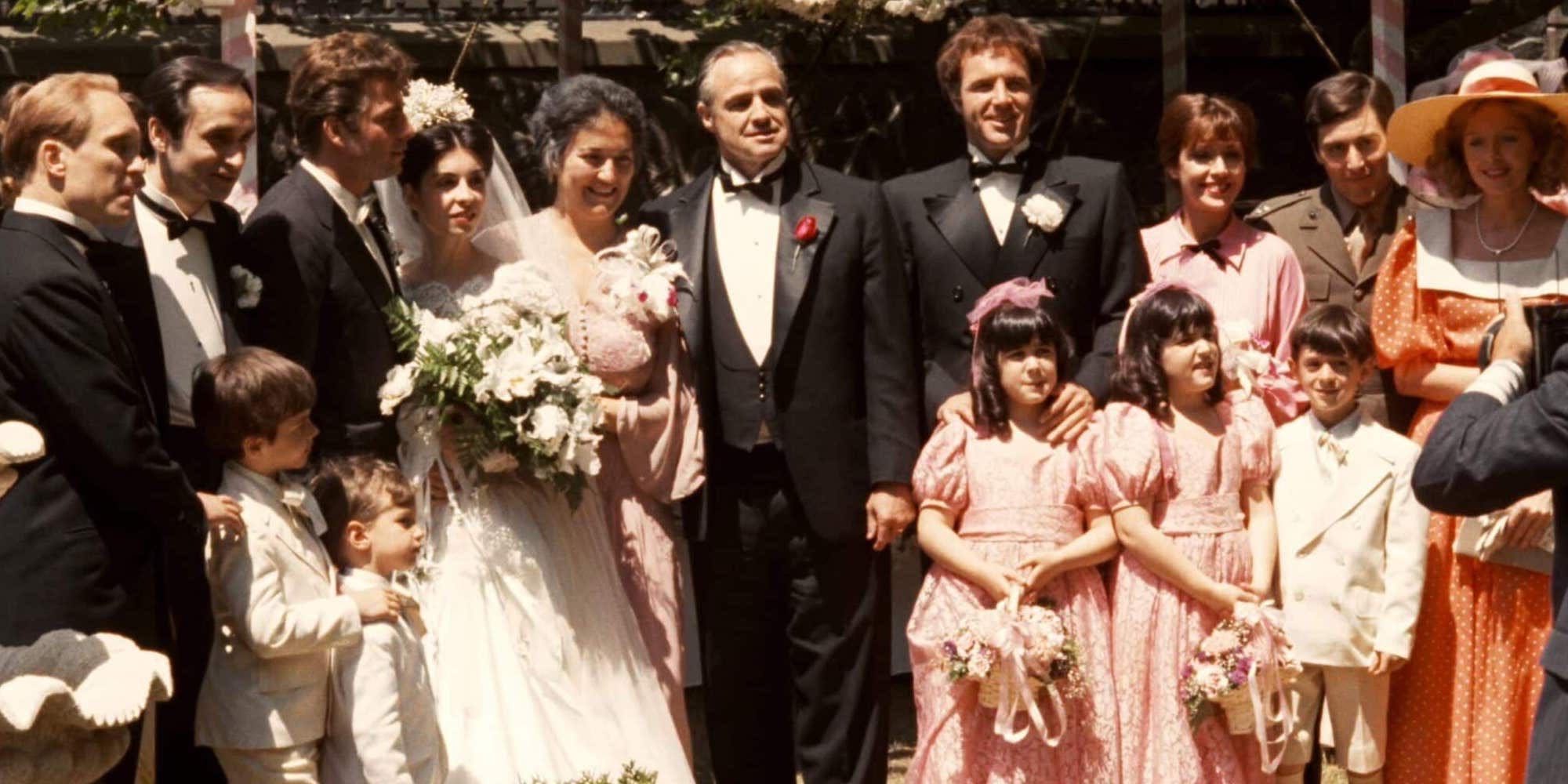Summary
- "Godfather" is a term from the real-life mafia, symbolizing the boss of all bosses.
- In the movie and book, "godfather" has different meanings, linked to family, religion, and respect.
- The title refers to Vito but shifts to Michael, exploring their rise and fall within the mafia.
The Godfather introduces the audience to Vito Corleone, the title “godfather”, but leaves the question of why he’s called like that and who the movie’s title is really referring to. The crime genre in film is home to some of the greatest films ever made, and the one often mentioned as the best in this branch is Francis Ford Coppola’s The Godfather, released in 1972. Based on the 1969 novel of the same name by Mario Puzo (who co-wrote the script with Coppola), The Godfather was a huge critical and commercial success, making way for a trilogy.
The Godfather introduced views to the Corleone family in New York City, led by Vito Corleone (Marlon Brando). When Vito decided to hand over his empire to his youngest son, Michael (Al Pacino), this unintentionally put the lives of his loved ones in grave danger, pushing Michael to take over despite his best efforts to stay out of the family business. The rest of the Godfather trilogy explores Vito’s backstory and Michael’s rise and fall as the godfather, but it leaves the big question of why Vito (and Michael) was called “godfather”.
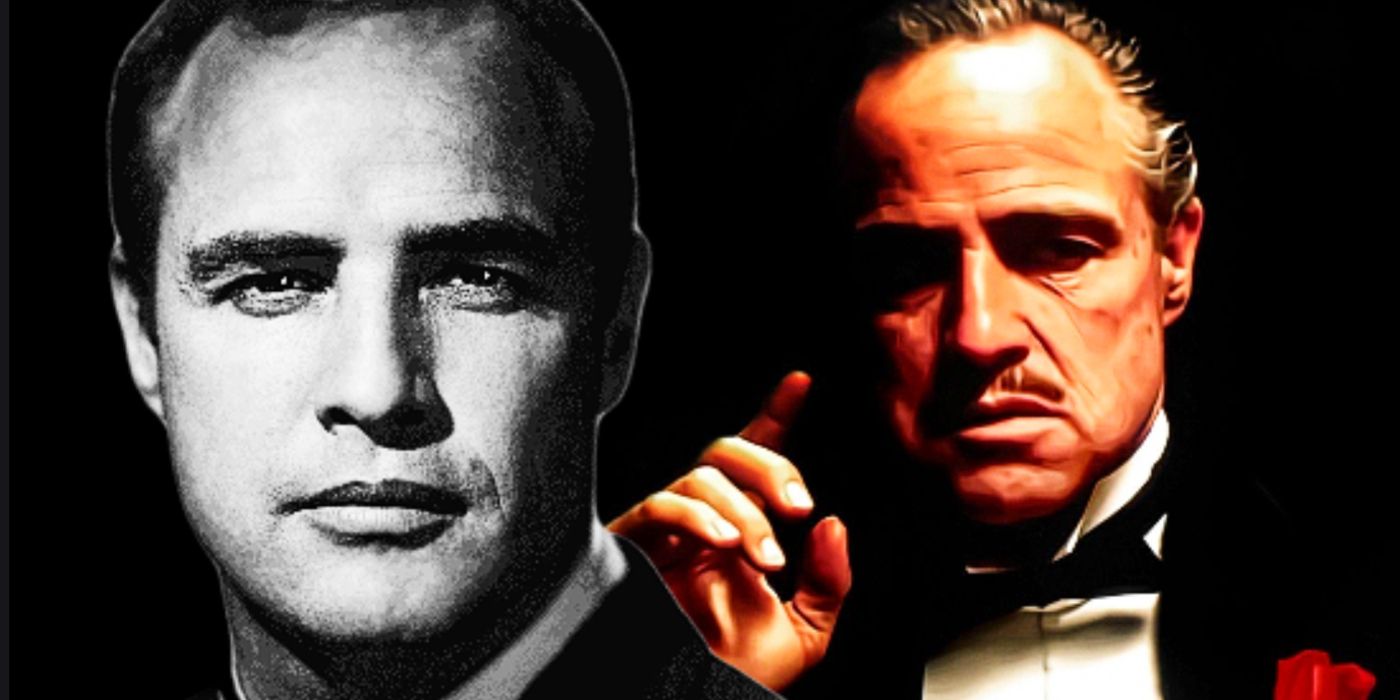
How Old Marlon Brando Was In The Godfather (Compared To Don Corleone)
One of Marlon Brando's most iconic roles was as Don Corleone in The Godfather, and his age will surprise fans who naturally assumed he was much older.
The Term "Godfather" Was Used In Mafia Circles During The 1960s
“Godfather” Is A Real-Life Term
At the top of the pyramid of the mafia in Sicily and America is the boss of all bosses, also known as the capo dei capi or godfather.
Although The Godfather didn’t tell a true story and Vito Corleone wasn’t a real person, it did take a lot of inspiration from real-life mafia families and their leaders. The mafia is a criminal organization, and as such, it has its own hierarchy, with names for each role in the family. At the top of the pyramid of the mafia in Sicily and America is the boss of all bosses, also known as the capo dei capi or godfather (from the Italian word “padrino”), though this term has been given by the media to refer to this boss/leader and the mafia never recognized such position.
Vito Corleone was born in Corleone, Sicily, and his birth name was Vito Andolini.
The godfather can promote or demote family members at will and can order murders inside and outside the family.
The godfather of a crime family has total or near absolute control over the members of the organization, and as such, is a respected and feared figure. The godfather can promote or demote family members at will and can order murders inside and outside the family, and when the capo of the family dies, the crime family members choose a new boss from inside the organization, as happened with Michael at the end of The Godfather.
Joseph Valachi was the first member of the Italian-American mafia to publicly acknowledge its existence, and thanks to him, terms like “cosa nostra” and the different rankings are now known.
This structure was revealed by Joseph Valachi in the 1960s, a member of the Genovese crime family who, believing he was about to be killed for being wrongly believed to be an informant, ended up becoming one to save his life. Valachi was the first member of the Italian-American mafia to publicly acknowledge its existence, and thanks to him, terms like “cosa nostra” and the different rankings, as is capo/godfather, are now known to the public, along with details of the history of the mafia, its rituals, and how it operates.
"The Godfather" Has A Different Meaning In The Movie & Book
Francis Ford Coppola Made A Couple Of Changes To The Book
In Puzo’s novel, the term “godfather” is more a term linked to family and religion.
Although Vito Corleone is referred to as “godfather” in both the movie and book, the term has different meanings in both, though they are still, at the core, a high-ranking name. In Puzo’s novel, the term “godfather” is more a term linked to family and religion. In catholicism, a godparent is one who witnesses a child’s christening and is responsible for the religious upbringing and spiritual formation of the child. Godparents are chosen by the parents of the child, and if anything should happen to the parents, the godparent(s) would become a mentor or even legal guardian.
Vito being the godfather is not just in the literal sense of being a child’s godparent, but Vito is also a godfather-like figure to those in their community, who may or may not approach him for help or a favor. This religious and familiar connection with the term “godfather” isn’t as strong in the movie, instead being a name used to pay respect to Vito and to identify him (and later Michael) as the figurehead of the family.
Does The Godfather's Title Refer To Vito Or Michael?
The Godfather Sees Two Characters Taking The Mantle
The Godfather sees two Corleone family members carrying the title of “godfather”. Throughout most of the movie, Vito Corleone is the godfather, but the one who slowly becomes the main character (in the book as well) is Michael. The Godfather follows Vito’s decline and Michael’s rise, with the latter becoming the godfather at the end of the movie. The movie’s title, then, refers to Vito, but the sequels’ titles are about Michael. The Godfather takes a lot from real-life Italian-American crime families, adding realism to it and making it even more intriguing and interesting.
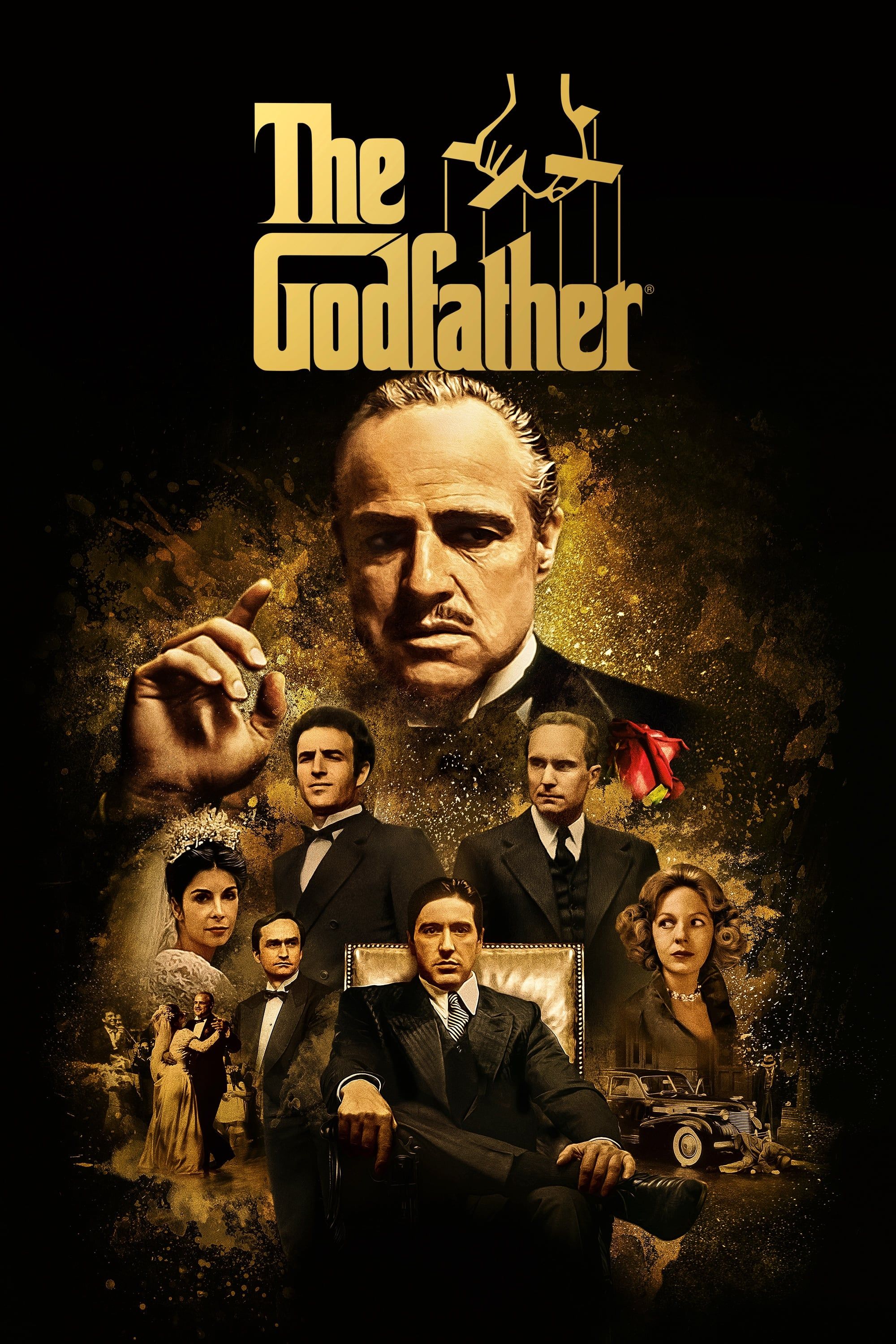
The Godfather (1972)
Francis Ford Coppola directed this 1978 classic that would go on to become one of the most iconic crime films ever made. Starring Marlon Brando, James Caan, and Al Pacino, The Godfather gives a tense and introspective look into the Corleone crime family of New York City.
- Director
- Francis Ford Coppola
- Release Date
- March 24, 1972
- Cast
- Marlon Brando , Diane Keaton , James Caan , Al Pacino , Robert Duvall
- Runtime
- 175 minutes


